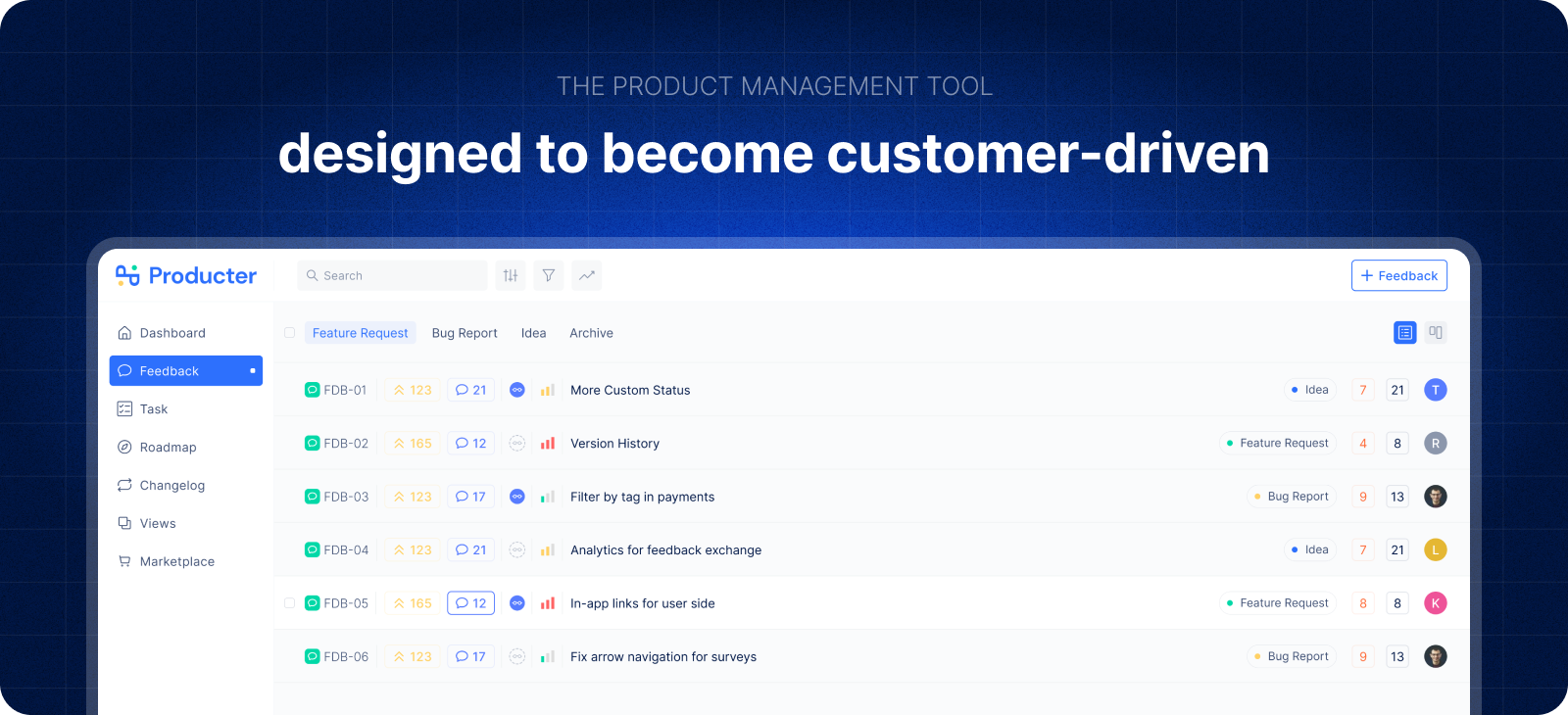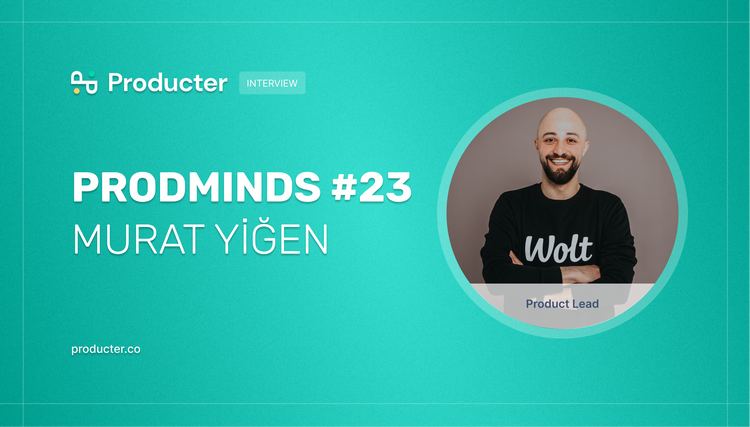Team Producter: Would you tell us a bit about you and your career path in product management?
Mathew: The path to Product Management was a little meandering for me. I’d love to say that getting into Product Management was intentional, but it wasn’t.
It was more like putting together a jigsaw puzzle without knowing what the final picture would be. In the end it seems obvious, but at the time it was a lot more about taking what felt like the next best step. Each step helped me build skills and experience that were relevant to what I do now.
Half of my career was in technology consulting and casual gaming, and the second half is when things started to come together. It happened by chance — a vendor’s Product team basically said “Why are you doing this? You’re a Product Manager.” Before I knew it, I was taking a chance and moved my life from Barcelona to Dublin to find out if they were right! It turns out that they were.
Team Producter: Which part of being a Product Manager is the most challenging for you?
Mathew: This is such a good question. I find that it can be challenging to avoid acting instinctively. Sometimes you have to be thoughtful about which behaviours or techniques you apply.
For example, I’m naturally detail-oriented, so I need to ask myself whether diving deep into a problem is the right thing to do. Sometimes speed is more important than perfection. As my previous manager put it once, “good enough is good enough”.
This is particularly true as Product people move from individual contributor roles to manager roles. Behaviours that make for a successful individual contributor might make you a poor manager. Seeing that difference and making the transition can be challenging.
Team Producter: How do you manage product feedback? When it comes to integrating feedback into the product, what steps do you go through from to start?
Mathew: Feedback is often a messy and imperfect thing. Four things help me to make the most of feedback; making sure it’s balanced, understanding it, consciously applying it, and creating a feedback loop.
Every conversation with prospects and customers is gold. I want to make sure that as much of that is coming my way as possible. That means consolidating feedback from as many sources as possible (eg. support and sales teams, researchers etc). It’s important that the feedback isn’t pre-filtered as well.. I don’t just want feature requests, I want to know what questions people are asking, what things confuse them etc as well.
From there, categorize the feedback (to identify themes and trends) and identify anything that needs more detail (so I can have those conversations). This is where the hard work is, and also where all the value comes from. It’s best to do this on an ongoing basis rather than as a huge activity once or twice a year.
There’s a bunch of tools out there that help with these first two steps. I’ve used ProductBoard and EnjoyHQ in the past. They’re much better than trying to track feedback in a spreadsheet, and they allow you to easily look at themes and trends over long time periods.
How I then apply that aggregated feedback depends on a few things, so there are a few questions I ask myself:
- Is the feedback aligned with our strategy? If not, is this a signal that we’re not focusing on the right things?
- Is the feedback aligned with work we already have planned? Does this change our understanding of the problem? Does this feedback increase its importance? Should consider doing it sooner?
- If it’s strategically aligned and not on our roadmap, should we explore the problem more deeply? Should this make its way onto our roadmap?
- Is this an obvious quick win? I like to reserve capacity for things like this, where the effort is low and the impact is potentially high. Should we use some of our capacity for this?
The next step is always to intentionally create some kind of feedback loop. If we don’t do anything with the feedback, how will I know that was the right/wrong decision? If we do something, how will I know that it was successful?
I actually had a great conversation about all of this with Engineering and Research leaders over on Intercom’s podcast not so long ago, talking about how customer feedback informs what we ship. If folks are interested in the topic, it’s worth a listen (if I do say so myself).
Team Producter: Taking care of the mental health of your team is an important part of your job as a product manager. How do you measure the workload of your team? Based on the results of your measurement, what decisions do you make?
Mathew: The intent behind measuring workload is an honourable one — you want to support people and make sure they’re set up for success — but in reality it has the opposite effect. People feel constrained by it and less free to actually share when they’re having a hard time. High psychological safety and regular, predictable, reliable support conversations are more important.
There are a few things I do that have worked well in the past..
I’m open about what I’m working on and how challenging it is. I set expectations with people when I’m doing work that requires a lot of focus. This encourages people to do the same, and they feel safe opening up about when they have too much going on.
I have two sessions with each of my direct reports each week. They're the most valuable meetings I have.
One’s a working session, where we collaborate on something they’re focusing on at the moment. This gives them guaranteed time for practical support or guidance.
The other is a 1:1, where we focus on their wellbeing and career goals. We can have conversations about them as people without getting distracted by project work.
Both sessions (plus other time we spend together) give me a good sense of how someone’s doing. I can identify their challenges, and there are plenty of opportunities to provide support or for me to receive feedback.
I also run a retrospective with my team each week. What went well, didn’t go well, or things we could improve. This is such a great signal. We do it as a group, so we often highlight organisational problems that might impact everyone. It also creates opportunities for peers to support one another.
Ultimately, the question I’m trying to answer is “is this person set up for success?”, and the decisions we make should enable that for them. The answer to that question is one that we should decide collaboratively.. I’ll work with the team to share what I’m seeing and explore how we might make things better.
Team Producter: It is important for product managers to focus on strategic thinking. Is there anything you are doing to improve it, and if so, how?
Mathew: Working on strategy is hard. Nobody ever nails it, but each time you do it, you get a little better.
Over the years, the kind of strategy work I do has changed. It’s gone from defining strategy for a specific product to defining it for an entire area of the business. What makes for a good strategy hasn’t changed, but the way I go about it has.
The last few strategies I’ve worked on have been more inclusive of the broader business than ever before. Strategic initiatives affected Product teams, as well as folks in Sales, Marketing, Support, and other parts of the business. A successful strategy for a broad area must be holistic in nature, with everyone pushing in one direction.
To improve, I’m working on the relationships we have with those areas of the business 52 weeks of the year. Collaborating on strategy without meaningful relationships results in a shallow perspective, I find. I’m aiming to get to the point where we have enough shared perspective that we’re finishing each other’s sentences. If I took 6 months off would everyone have enough context and understanding that they could write a new strategy without me if they needed to?
It’s a lofty, and maybe unattainable(!), goal.. And as I said earlier, nobody ever nails strategy work. Right now, though, that’s the most impactful thing I can do to increase our impact.
Producter is a product management tool designed to become customer-driven.
It helps you collect feedback, manage tasks, sharing product updates, creating product docs, and tracking roadmap.






